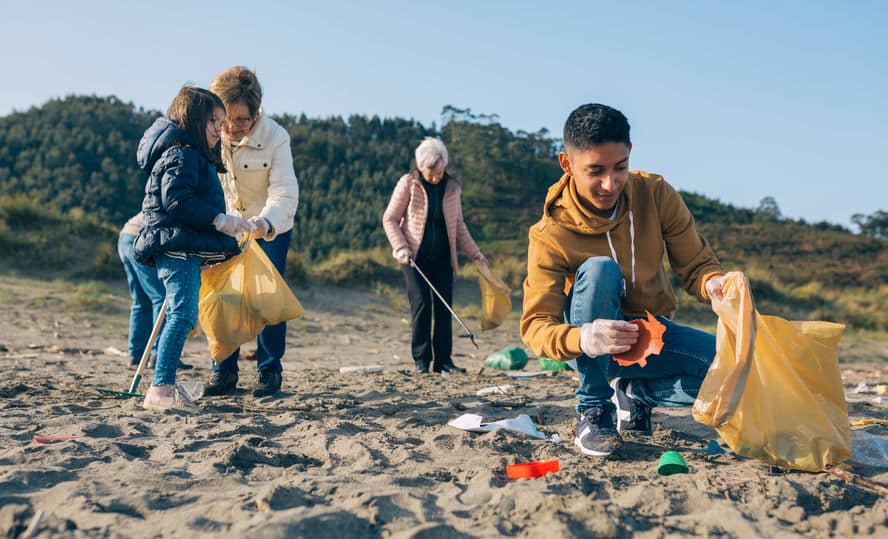By John Salak –
Earth Day comes once a year and it is a pretty big deal in terms of generating awareness for why people need to take care of the planet and getting them motivated enough to pitch in and start doing something to protect it. In fact, it’s estimated that over 1 billion people worldwide now celebrate Earth Day. All these positive vibes and related activity are great. But while Earth Day takes place only once a year, the need to protect that planet is a full-time job that needs constant attention. Fortunately, making an ongoing difference is easy and can begin with some simple activities that can be handled by individuals or small groups.
WellWell, in fact, has looked around for ideas to get everyone started so that Earth Day becomes every day.
Grab a bag and go for a walk—and when you find any discarded plastic, pick it up. Plastic waste is found everywhere—fields, playgrounds, ditches, simply everywhere—and it threatens to hurt animals, people and the environment. And remember, after its collected, don’t forget to recycle what’s possible. Virtually, every community has recycling programs.
Looking for some sun, social connections and a way to help for planet? Sign up for a beach clean. They happen all year round in virtual every coastal area. They are also easy to find on Facebook or websites such as Surfers Against Sewage and the Marine Conservation Society. They’re getting big too. The annual Great British Beach Clean, for example, draws close to 10,000 people every year who remove over 250,000 pieces of rubbish from beaches.
Got a backyard or even a space for a window box? If so, start planting. Gardens work well in small spaces and herbs can thrive in a window box. Not interested in vegetables or herbs? Plant flowers or even a tree. All of these options are great for you and the planet.
Transportation is responsible for more carbon emissions than anything else in in the United States. The reason is that Americans spend about 25 minutes commuting each way and for every gallon of gas used, 20 pounds of carbon dioxide is sent into the atmosphere. Riding a bike to work is a great way reduce these emissions. It’s also a great way to get in shape.
There is a lot of food wasted in the world, perhaps as much a third of the food produced. That’s not only bad for the fight against global hunger, it generates an unholy amount of greenhouse gas emissions. One simple solution is to waste less food at home by trying new recipes, eating leftovers and even using vegetable scraps to make a soup stock. And that’s just a start.
People need to do a better job composting biodegradable food and other waste. It is a win-win-win situation. Composting means less garbage goes into landfills, fewer emissions are generated, and composted material can be used to replenish the soil and generate more plants, flowers and edibles.
Skip cleaning products that do more harm than good. That means passing on cleaners loaded with artificial fragrances and chemicals. Chances are these products are hurting the planet and may not be doing consumers much good either. Lean on natural cleaning products. Baking soda, lemons and vinegar all come to mind, and they are plenty of others.
Electrical devices are sneaky buggers. Most keep drawing energy even if they are turned off so long as they remain plugged in. The U.S. Department of Energy, in fact, reports that about 75 percent of electricity used in homes comes from appliances that are already turned off. So, start pulling the plug. You’ll save money and help the planet.













